One of the biggest things a home service professional needs when it comes to growing their business is great customer service. And that is where more and better sales will happen. Happy customers, when it comes to home services, are repeat customers. But what else can you do to sell more? First Impression No matter Read more
Whats New

One of the biggest things a home service professional needs when it comes to growing their business is great customer service. And that is where more and better sales will happen. Happy customers, when it comes to home services, are repeat customers. But what else can you do to sell more?
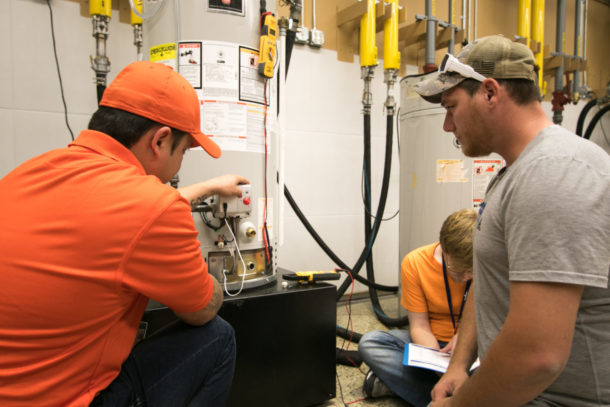
First Impression
No matter what the circumstances, a first impression matters. But when you are a home service provider, you need to be extra vigilant. Why? Because as a plumber, you are entering someone’s private space – as a stranger.
It is your job to put them instantly at ease; being friendly and positive is essential. Since you never know what state the house or the person is in, being nonjudgmental and focusing on the job is necessary. Use your name to introduce yourself, and quickly find some common ground – the weather is often the easiest to use.
Value
When you are focused only on the upsell and increasing profits, you’re not likely to see a huge improvement. If, however, you approach it from a ‘what is value to this customer?’, things change; instead of trying to sell them the most expensive one, as them what they need and opt for the best value, often, customers will want regular maintenance, repairs, and more when they understand how it benefits them and the value it offers.
Additional services are where your skills as a plumber shine; most customers can’t do what you do – and in some cases, they don’t even understand it. Show them the issue and explain the solution. These issues could be anything from corrosion, leaks, old heaters, bad pipes, and more.
Training
Confidence is key when it comes to selling more services and products, and often, that takes some dedicated sales training. A sales training LMS can be used by the entire company, no matter how big or small, to ensure that everyone gets the same training and understands what matters most to the customer.
Clarity
Customers need the information they receive to be clear and effective. That means that saying it might cost X and it could take Y will feel uncertain to them. Using language that makes sense to your customer is important.
Transparency is essential; if you can go through a pricing structure and give them a strong suggestion of how long it will take, they will feel more secure in your services. You can tell them what the scope of the work is so that they are prepared for any mess, the time, and the cost in advance of agreeing to any work.
Other Services
Depending on the company you work for, or if you own your own company, you can talk about other services that they will need. Weave the different services into the conversation, or be bolder and suggest them and why they are beneficial. Many customers would prefer to have a single company or person do other jobs in the home once a rapport is made.
Getting calls in the first place usually comes from using these online techniques: Top 9 Most Effective SEO Strategies for Business – Mechanical Hub | News, Product Reviews, Videos, and Resources for today’s contractors. So, a combination of in-person sales and excellent online management is a must to truly see an increase in profits.

It’s safe to say that plumbing services will forever be in demand. It’s not a skill that is easily acquired and while many households might be able to resolve basic plumbing problems, it’s not always that simple. However, despite it being a much-needed service, there are a lot of plumbing companies out there, meaning you’re Read more
It’s safe to say that plumbing services will forever be in demand. It’s not a skill that is easily acquired and while many households might be able to resolve basic plumbing problems, it’s not always that simple.
However, despite it being a much-needed service, there are a lot of plumbing companies out there, meaning you’re in tough competition with both old and new businesses. These businesses might be doing a lot to acquire customers you’re after.
With that being said, here are some helpful tips to be one of the best plumbing companies in your area.
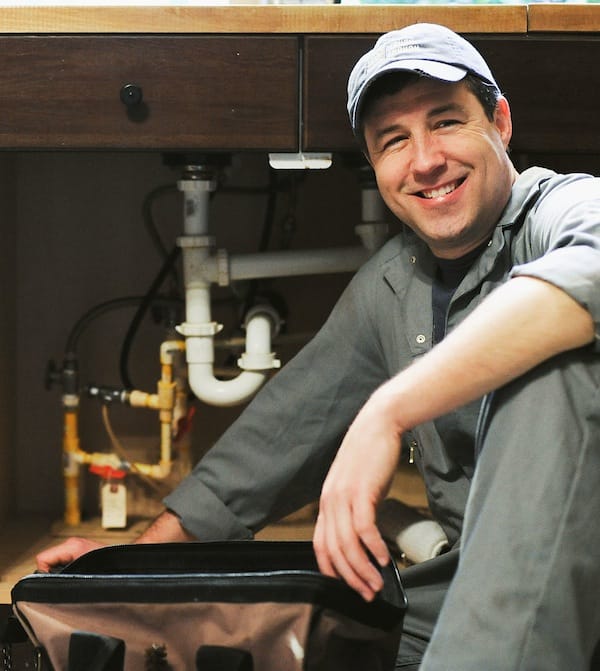
Build a website for online users to find you
Not all plumbers or plumbing businesses will bother getting a website, especially those who have been long-established and therefore don’t feel they need one.
However, with the digital world forever growing and transforming the way many choose to spend their money, it’s worthwhile to invest your time and effort into creating a website – even if it’s a basic one!
Building a website enables online users to find those, who might live locally and be in need of your services. It’s one of the first things that many people do when it comes to finding plumbers and other handy-type services in the area. If your business doesn’t exist online, then how do you expect new customers to find you?
While you might have committed customers now, they might not always be available.
Go above and beyond for current customers
When it comes to your plumbing business, focus on going above and beyond for your current customers. These, after all, are your bread and butter of business. They really are the individuals who are propping up your business all year round and most importantly, when times get tough.
With that being said, find ways to always provide more value and satisfaction for current customers. What could you offer as a reward for their loyalty? Perhaps a discount every so often that they can use on a bill from you. It’s these little treats and discounts that can often encourage your long-term customers to remain for years to come.
For newer customers, showing this attitude of going above and beyond, will also make a big difference to their viewpoint of the business and hopefully, they’ll find themselves coming back again and again for your services in particular.
Advertise locally and encourage word-of-mouth
With plumbing services, unless you’re a big company that’s got goals to go national or international, you may be relying on those who live locally for the business. Advertising locally is therefore an important part of running a successful plumbing business.
At the same time, you want to try and encourage word-of-mouth. Being chatty with your customers and ensuring they recommend you to anyone in the local area that they might know, is a good sign-off to have with every customer you have.
You may start to find you get more queries for new customers as a result and a demand for local work that has come from personal recommendations.
Make use of digital marketing
Digital marketing is something to be aware of when it comes to advertising your business. While you might not be the best at social media and the digital world as a plumber, there are certain companies out there that will be able to assist in your advertising needs online.
With digital marketing, it’s worth investing a bit of your money into marketing online. From paid advertisements that target local customers to building up a social profile on one of the many social media platforms, there are some great opportunities to be found with digital marketing.
A bit of digital marketing here and there can certainly help to build your business and attract customers from further afield. It’s something that might also open up opportunities for business expansion beyond your local area.
Hire the right plumbers for the business
Plumbers are an important hire to make when it comes to your business. The plumbers you have who are going out and representing your business need to be the creme de la creme of the plumbing world.
Hiring the right plumbers is crucial because every one of them will contribute positively – or negatively to the business reputation. Be selective with plumbers that you bring into the business and only do so when you feel confident that they’re the right fit.
It’s always useful to have plumbers who you can train from a young age or at least have come into the business with plenty of experience. That way, it can save a lot of time and effort on your part stressing about whether they’re the right fit.
Provide additional training to improve skillset
While it does require effort to train your staff, it’s always good to be able to provide additional training where possible. Improving your team’s skillset is always worthwhile, especially when it comes to more complex jobs and those individual jobs that they might not have experienced prior.
Think about what training might be available for you to make use of and to utilize in order to create a team that’s talented and knowledgeable for all plumbing needs.
Keep an eye on what your competitors are up to
Finally, when it comes to building a successful business of any kind, it’s always good to take a look at what your competitors are up to. After all, they might be doing something that you’ve missed or could do better.
For plumbing companies, they all offer the same service, which means finding ways in which your own business might be able to stand out. Consider what you might want to do or introduce in order to stand out from your competition and effectively steal prospective customers from those other businesses.
Being the best plumbing company in your area is a title that you should be keen to earn. Use these tips to help become one of the best, as well as have a reputation that only benefits the business over time.
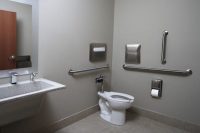
Client restrooms are something that needs to be clean and more importantly, accessible for everyone to use. As a provider for your clients, it’s important to do everything you can to adapt existing bathrooms to make them more accessible or if they’re being built from scratch, to ensure they tick off all the relevant necessities Read more
Client restrooms are something that needs to be clean and more importantly, accessible for everyone to use. As a provider for your clients, it’s important to do everything you can to adapt existing bathrooms to make them more accessible or if they’re being built from scratch, to ensure they tick off all the relevant necessities needed.
In a diverse and equality-led world, it’s often the small changes that make a big difference to those who need it. Here’s how to help ensure your client’s restrooms are more accessible.
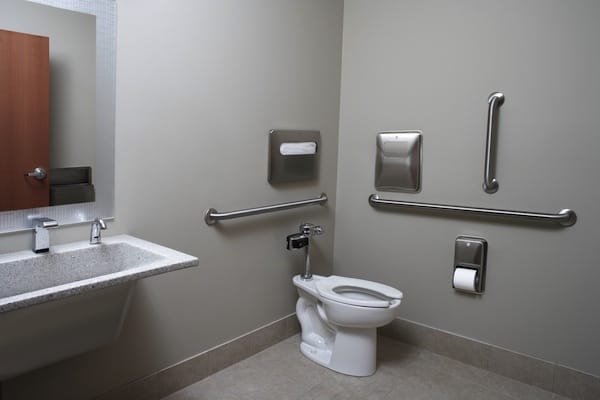
Make your flush handles access-friendly
First and foremost, the flush handles need to be access-friendly. It’s something that’s often not thought about, especially for those who don’t need to think about needing such accessible-friendly fixtures.
However, the right flush handle is going to help every one of all access-needs, to ensure they flush the toilet with success. If there are any existing toilets that have less than friendly flush handles, consider changing these immediately. It’s a quick fix that will surely make all the difference.
Install railings for those who need support
Railings are a great way to provide those who need support when it comes to mobility in the toilet. Getting up or sitting down on the toilet might prove challenging for some, which is why it’s worth adding in railings for those who need it.
A railing manufacturer is worth outsourcing to ensure you’ve got the very best in stability and durability when it comes to railing installations. They can also come in handy for those client restrooms that also have shower cubicles available.
Use non-slip mats in showers
An access need which is also a general need in wet floor environments is non-slip mats. Not having anything on the floor of shower cubicles can be dangerous and as a result, might cause injury to employees or anyone who might wish to use the shower cubicles in your client’s building.
Install a raised toilet seat
Raised toilet seats don’t often get considered but these again, can be helpful for those transferring from a wheelchair or who might have problems squatting down to the usual position of a toilet seat.
Even for those who don’t need access needs, a raised toilet seat is an advantage. Make sure that all toilet cubicles with toilet seats are raised. This doesn’t mean you need to move the position of the toilet bowl itself, just add height through the toilet seat instead.
Add in a pull cord for emergencies
Finally, most client restrooms should already have these in place but they may only be available in disabled toilets. A pull cord might be better to have in every toilet, just in case anyone gets into trouble.
Pull cords are handy in emergencies and can alert those in building ops or in reception to get help to this area quickly.
Helping improve the accessibility of a business premise is important. So with that being said, use these tips to help make your client’s restrooms more accessible for years to come.
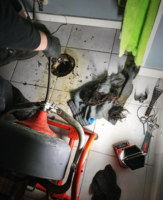
Your plumbing is an essential part of your household, and knowing how best to maintain your networks of pipes, your boiler, and your sewer services will serve you well and help you avoid some of the more common household plumbing issues. Any plumber will tell you that blocked drains, toilets, leaky faucets, and low water Read more
Your plumbing is an essential part of your household, and knowing how best to maintain your networks of pipes, your boiler, and your sewer services will serve you well and help you avoid some of the more common household plumbing issues.
Any plumber will tell you that blocked drains, toilets, leaky faucets, and low water pressure are their bread and butter and account for many of their callouts. However, these aren’t the only issues affecting your plumbing system.
There are many faults you can uncover when it comes to the plumbing in your home, and the older the pipes are, the more likely you will experience issues from time to time.
But what are more uncommon issues oyun right face, and how can you identify them?
 Tree Roots In Pipes
Tree Roots In Pipes
If you have trees on your property and you are experiencing frequent blockages, or you are noticing a strong smell, waterlogged ground, or sewage backing up in your garden, it can be that the tree roots are causing the issue, and you might need to ask an arborist to come and help you with a tree removal to stop this happening over and over. A plumber can help you rectify any damage caused by rogue tree roots, but removing the tree altogether will remove any issues and stop you from having to keep fixing problems caused by trees.
Freezing Temperatures
Freezing temperatures can be a nightmare for your plumbing again, usually for older systems. When water in pipes freezes, it will expand. This expansion will then put your pipes and even toilets under pressure, causing an increased risk of cracks leading to leaks when water eventually defrosts.
To avoid this, you can add insulation to your pipes, or you can leave taps running slightly so the water is still flowing and doesn’t freeze.
Wipes
If you are flushing wipes down the toilet, this can cause blockages in your sewers, leading to slow-draining pipes and toilets, water rising back up the toilet, and the sewer backing up. While many wipes state they are safe to flush, the microplastics can build up and cause blockages. So, if you are experiencing any of the above issues and you flush wipes of any kind in the toilet, stop flushing them and have a plumber check out your pipes and sewers to remove any build-up.
Loud Water Valve
A loud water valve or water hammer occurs when a water valve is opened and shut suddenly, resulting in a loud banging noise. The reason for this is a sudden change in water flow, and the extra pressure builds up in the pipes, causing the noise from the valve. You can buy a device called a water hammer arrestor that is fitted near the valve or faucet, causing the issue and absorbing the sudden change in water flow, preventing the noise.
There are a multitude of water and plumbing issues you can experience in domestic plumbing systems, but these are some of the most uncommon problems you might encounter but not have heard of. If you are experiencing any symptoms mentioned in this post, these points could be the answer to your problems.
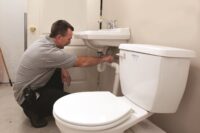
Often in the house, some issues can ruin our staycation experience. The subjects include broken pipes and problems in the bathroom and toilet, which look simple but can make staying difficult. Consequently, in order to solve these problems, you need a plumber, and for that, a professional plumbing service is a must. More so if Read more
Often in the house, some issues can ruin our staycation experience. The subjects include broken pipes and problems in the bathroom and toilet, which look simple but can make staying difficult.
Consequently, in order to solve these problems, you need a plumber, and for that, a professional plumbing service is a must. More so if you are in Australia, where snakes, spiders, and other animals can clog the pipes of your house.
Do you know? The market size of plumbing services is 123 billion USD. Hence, it showcases that plumbing services around the world are a serious affair. Moreover, in Australia, the market size of plumbing services is 19.8 billion USD.
Subsequently, plumbing services in Australia are fairly new, with the market slowly taking pace by helping houses with serious plumbing issues. Furthermore, it helps legalize the service under the law by allowing people to hire the right individuals for the job.
Plumbing services include fixing broken pipes, clogged drains, and other washroom problems, making it one of the important and integral aspects of every housing in the country.
So, amidst all of these things, there are certain things that one should look for while hiring a professional plumber.
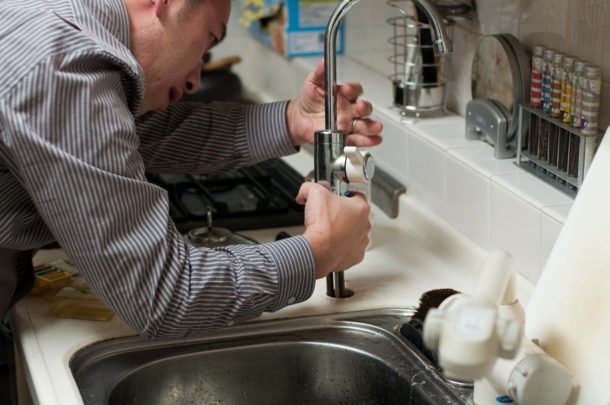
Things To Look For In A Professional Plumber
As discussed earlier, there are always issues with the toilet and pipes, which are as common as our normal daily activities. Hence, contacting a professional service will help you solve your home’s plumbing issues.
Here is the list of things you should for in a professional plumber.
Always Choose A Licensed Plumber
One of the things that you should look for in a professional plumber is that they should be licensed. This is important because it will showcase that they have received the right training and have the necessary knowledge of plumbing tools.
Therefore, you should hire a plumber who has insurance, as it will cure you from the legal issues. As plumbing is risky, you never know when one can get injured. This will cost you money and also a chance of getting riddled with legal complaints.
Furthermore, with a license, you can engage them in an intense plumbing job, where the rate of the risk. This is because their insurance policy has got them covered. Conversely, it will show that you will follow the government rules and regulations aligned with professional and non-professional plumbers.
So, when hiring a professional plumber, ensure they have proper insurance and license to give the best user experience.
Experience
Another key thing you should consider while hiring a professional plumber is their experience. In order to excel in plumbing services, one requires experience ranging from two to five years.
Therefore, when you are looking for a plumber, you should pay for experience. This is because they will know more about the tools and the intricate issues associated with toilet and plumbing pipes.
Often, there are issues that the newbies can’t recognize because they have not followed up with cases. This can cost you more damage and waste of money. So, in order to avoid this, it is better to hire an experienced person who knows about fixing things, mainly plumbing issues.
Further, when you are in Queensland, which is the hub of venomous snakes and spiders, experienced plumbers will ensure they can’t clog the pipes.
Budget
Monetary value is another indication that you should look for while hiring a professional plumber. Hence, before you hire a professional plumber, you should watch for their prices. This is because you don’t want to pay too much for their services.
Consequently, before hiring the services, you call them and let them review the house and the issues prevailing in the pipes and other parts of the house. This will allow them to set the exact price for the services.
Hence, you always contact a professional service, where the plumbers or the company gives value for their services.
Online Research
When you start looking for a plumber, you ask your family and friends to suggest a plumber to resolve your issue. Otherwise, what you can do is search for them on Google.
You will get all the necessary information there, following the reviews of please clients. This will be an added bonus because you will know about their services. Hence, it gives a suitable value for money.
Moreover, there is a high chance that you will get references from many plumbing companies on the Internet. They will give you the added knowledge of the high-quality plumbers who know the whereabouts of their job.
Choosing An Established Company
Another factor to consider while hiring a professional plumber is that you should look for an established company. Hiring a plumber from a reputed company is important, as it will help you select the best guy for the job.
Therefore, you should find a firm that has been in the job for several years and catered to a wide range of customers around the state. This will ensure they are trustworthy and you can expect a better job from them.
Conversely, you should hire plumbers from the startups, as inexperience may cost you a fortune and cause more damage to your property and assets. On the other hand, you should choose a company with brilliant customer care and good professionals who will give the best services.
You can do this by checking online. Larry Page and others have made an organization for you. In other words, you can choose Live Services Group, which provides same-day plumbing services in Australia.
Wrapping Up! Once And For All
In the end, we can say there is no such strict rule book to hire a professional plumber, but it is better to hire from a company, as it will give more value for money.
The services will be cheaper and with better customer service. Following this, they will provide you with licensed plumbers, ensuring they don’t have to face any legal charges. Lastly, it will ensure that your property is safe to use and reside.
Therefore, following the point discussed in the previous section to get better clarity on the matter.

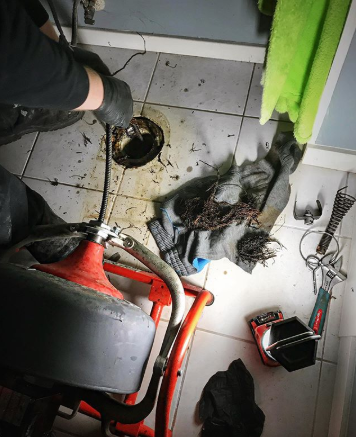 Tree Roots In Pipes
Tree Roots In Pipes